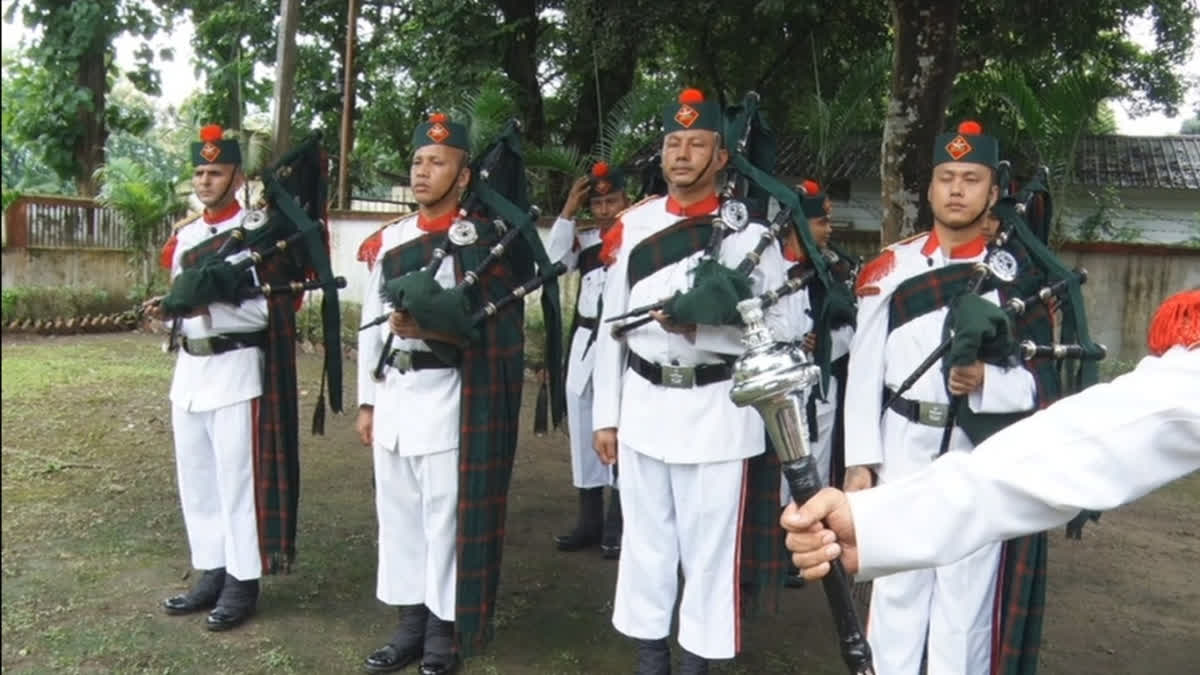Hyderabad: Ahead of the 78th Independence Day celebrations, ETV Bharat visited the 30th Battalion of the Assam Rifles (AR), the oldest paramilitary force in India to delve deep into their duties, training modules, obstacles they face while protecting the nation, and more.
ETV Bharat Senior Journalist Pranab Kumar Das visited The AR, India's oldest paramilitary force, often called the "Sentinel of the North East" and the "Friend of the Hill People". It was first established by the British in 1835 as the 'Kachar Levy' to protect the tea plantations and plains of Assam.
Over time, the role of the force enlarged with the expansion of British rule in North East India. In 1917, the force was renamed it 'Assam Rifles'. The AR has played a significant role in various wartime conflicts including World Wars I and II, where it served both India and other countries.
After India's independence in 1947, the AR was initially under the Ministry of External Affairs but was later brought under the Ministry of Home Affairs.
Currently, the AR has 46 battalions with more than 65,000 personnel. Its roles include counter-terrorism, border security, assisting civilians in emergencies and maintaining internal security, especially along the Indo-Myanmar border. Deeply involved in the development of the North East, the force provides medical aid, education and infrastructure to remote areas.
Speaking to Colonel Rajiv Sharma, AR's 30th Battalion Commandant about fulfilling its security responsibilities in the Northeast, he said, "We are truly the sentinels of the North East, guarding and protecting the people, while contributing to the development and prosperity of the region
The AR is responsible for maintaining law and order, counter-insurgency operations, and protecting the public from external threats. We also provide humanitarian relief, medical assistance, and relief during natural calamities, making them trusted friends of the people."
Adding to this, he also said that AR aids in community development projects like infrastructure construction, educational promotion, empowerment of local communities, health camps, veterinary treatment, environmental conservation, tree plantations, rainwater harvesting etc.
Speaking about the difficulties and challenges AR faces in protecting security, he said that the rough terrain, dense forests, mountains, and inaccessible areas, severe rainfall and landslides in the Northeast often make it difficult for AR personnel to access and patrol.
"Some areas lack basic infrastructure, such as roads, communication networks, and medical facilities, making it difficult for the force personnel to function effectively. However, we have been able to balance security operations by maintaining the trust and cooperation of the people, adapting to the unique challenges of the region," he added.
Major Vivek YadaV said that AR has an Idea Invasion Center that fights against enemies alongside training other military forces. "In today's world of advanced strategies, soldiers are involved in new innovations, training in the use of new weapons and how to deal with violence in areas," he added.
A senior female officer said that currently, several female commanding officers are working on the ground and the day is not far when females don the hat of the Chief of Army Staff.
Read More:



